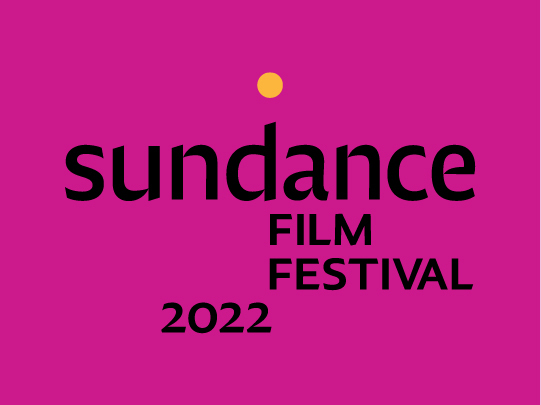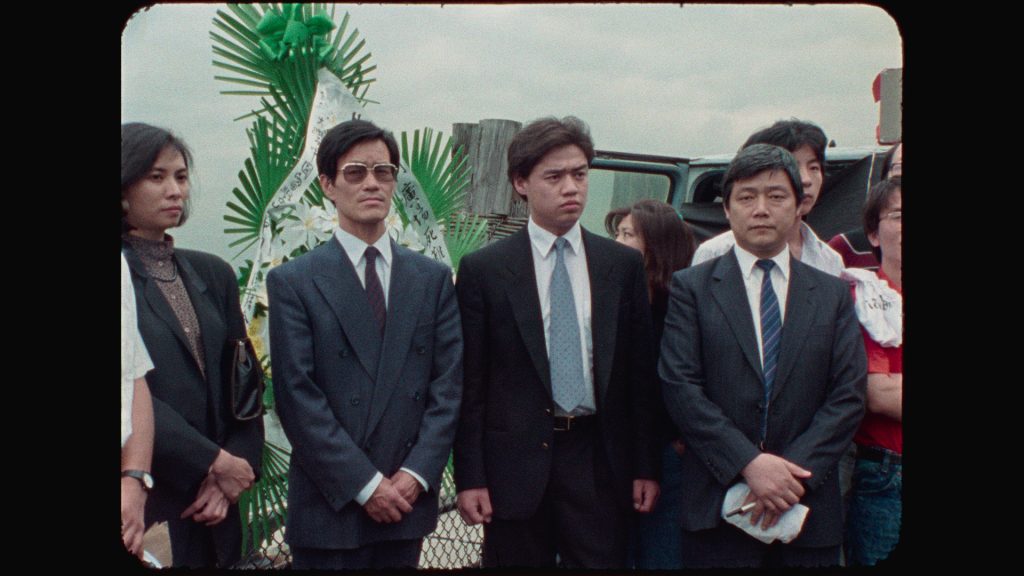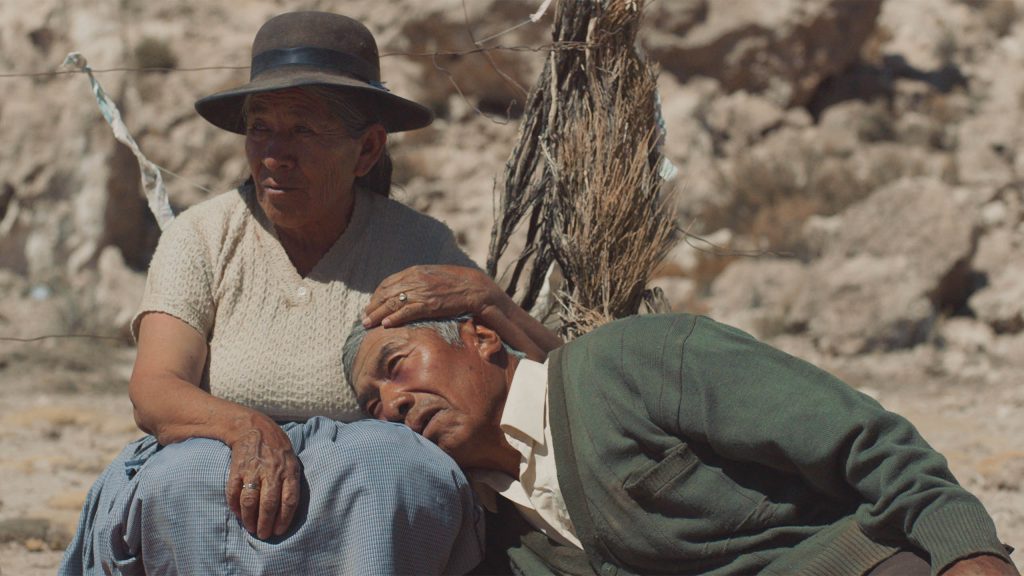April 10, 2022
by Carla Hay

Directed by Daniel Roher
Some language in Russian with subtitles
Culture Representation: Taking place from 2018 to 2021, in Russia, Germany and Austria, the documentary film “Navalny” features an all-white group of political workers, journalists, investigators and family members who are connected in some way to Russian activist/politician Alexei Navalny.
Culture Clash: Navalny, who has been an outspoken critic/opponent of Russian president Valdimir Putin, launches an investigation to find out who poisoned Navalny in 2020, and he returns from exile to Russia, knowing that he is certain to be imprisoned.
Culture Audience: “Navalny” will appeal primarily to people who are interested in documentaries about international politics, corruption and charismatic public figures.

Although the story of Russian political activist Alexei Navalny has been widely reported in the news, the documentary “Navalny” is a wild and intriguing look at what went on behind the scenes when he tried to find out who poisoned him in 2020. Directed by Canadian filmmaker Daniel Rohrer, “Navalny” (which was filmed from 2018 to 2021) gives an up-close-and-personal view of Navalny and people in his inner circle, through interviews and other candid footage. It’s not only an enthralling story of an aspiring Russian politician but it’s also a gripping exposé of a Russian government’s response to outspoken critics. “Navalny” had its world premiere at the 2022 Sundance Film Festival, where it won the U.S. Documentary Audience Award and the Festival Favorite Award.
Navalny (who founded the Russian-based group Anti-Corruption Foundation) has no shortage of passion for the causes that he believes in, but he also has no shortage of ego. There are moments when he acts like he’s a rock star of Russian politics. While the Vladimir Putin-led Russian government portrays Navalny as a traitorous villain, and others see Navalny as a heroic martyr, what emerges in this documentary is a portrait of someone is who neither as dastardly nor as noble as some of the labels that have been thrust upon him. He comes across as shrewd, charismatic and hungry for power so that he can carry out what he says is his agenda: bringing true democracy and more equality to the people of Russia, especially the underprivileged.
These platitudes are often given by people who want to be in political leadership roles. But Navalny—an attorney who has never held an elected political office in the Russian federal government—claims that he really is interested in politics for all the right reasons. At the time this documentary was filmed, he was the leader of the Russia of the Future party. Navalny’s past attempts to run for various political offices have been interrupted by his numerous arrests. The documentary briefly mentions the controversy of his past association with anti-immigrant, white Russian national groups, whom Navalny now denounces. He says his past alignment with these bigoted groups was to open a dialogue with them.
As a political opponent to Russian president Putin, Navalny became very popular, as evidenced by his ability to draw huge crowds and by gaining millions of followers on social media. But a plane flight from Tomsk to Moscow on August 20, 2020, changed all of that momentum, when Navalny was poisoned with Novichok and nearly died while on that plane, which made an emergency landing in Omsk so he could get medical treatment. An investigation determined that Navalny had been poisoned in Novosibirsk, Russia, before he boarded the plane.
In the documentary, Navalny says that before this attempted murder happened to him, he thought that the more famous he became, the safer he would be from any dangerous attack because it would be made more public. “I was wrong,” he deadpans in the movie. In the beginning of the documentary, director Roher can be heard asking Navalny, “If you were killed, what message would you like to leave behind for the Russian people?” Navalny replies, “Oh, come on, Daniel. No way. It’s like a movie for the case of my death. Let it be movie No. 2. Let’s make a thriller out of this movie.”
Indeed, this documentary has many twists and turns into Navalny’s personal investigation into who poisoned him. This attempted murder was a crime that he always suspected was ordered by Putin. What was revealed in this investigation has already been reported, but seeing it unfold in this documentary is nothing short of fascinating.
Along the way, various people are featured in the documentary who are close to Navalny, including Navalny’s loyal wife Yulia Navalnaya and daughter Dasha Navalnaya, who was in her late teens at the time this documentary was filmed. Dasha comments on the poisoning of her father: “It was surreal. It was like [something in] a book.”
Later in the documentary, Dasha says of the burden that her father’s notoriety has placed on the family: “Since I was 13 years old, I’ve thought about what I would do if my dad was killed.” The movie also shows Yulia’s successful efforts to get her husband out of the hospital where he was taken after being poisoned, because the hospital had “more police and government agents than doctors.” He was safely transferred to a hospital in Germany.
“Navalny” gives an insightful look at the employees in Alexei Navalny’s trusted inner circle. Press secretary Kira Yarmysh is often the voice of reason among some of the chaos. Chief of staff Leonid Volkov is the steadfast right-hand man who carries out the leader’s commands but also has to make split-second decisions on his own. Maria Pevchikh, the Anti-Corruption Foundation’s chief investigator, is fiercely protective of her boss and sometimes combative. During the investigation, Pevchikh has to compromise and reluctantly agrees not share certain information with Alexei Navalny, so as not to taint his bias as a victim.
Also crucial to the investigation is a group based in Vienna, Austria, called Bellingcat, led by chief investigator Christo Grozev, who calls Bellingcat a bunch of “data nerds.” It was through Bellingcat’s sleuthing using technology (and some good old-fashioned phone calls) that essential clues were uncovered. The documentary also includes a few journalists (such as CNN’s Tim Lister and Der Spiegel’s Fidelius Schmid) who also investigated the poisoning.
“Navalny” is essential viewing for anyone interested in international politics. Viewers who see this movie can expect to go through a rollercoaster of emotions. And although the investigation does yield answers, “Navalny” is the type of documentary that concludes with a very “to be continued” tone, because events in Alexei Navalny’s life and in Russian politics are still making history.
Warner Bros. Pictures and Fathom Events will release “Navalny” in U.S. cinemas for a limited engagement on April 11 and April 12, 2022. CNN and CNN+ will premiere “Navalny” on April 24, 2022. HBO Max will premiere the movie on May 26, 2022.
UPDATE: “Navalny” will be re-released in select U.S. cinemas for a limited engagement, from February 24 to March 2, 2023.
February 16, 2024 UPDATE: Alexei Navalny died in a Russian prison on February 16, 2024. He was 47. Russian officials claim that he died after losing consciousness from feeling sick. Several of Nalvany’s loved ones and associates have gone on record to say that they think he was murdered.






